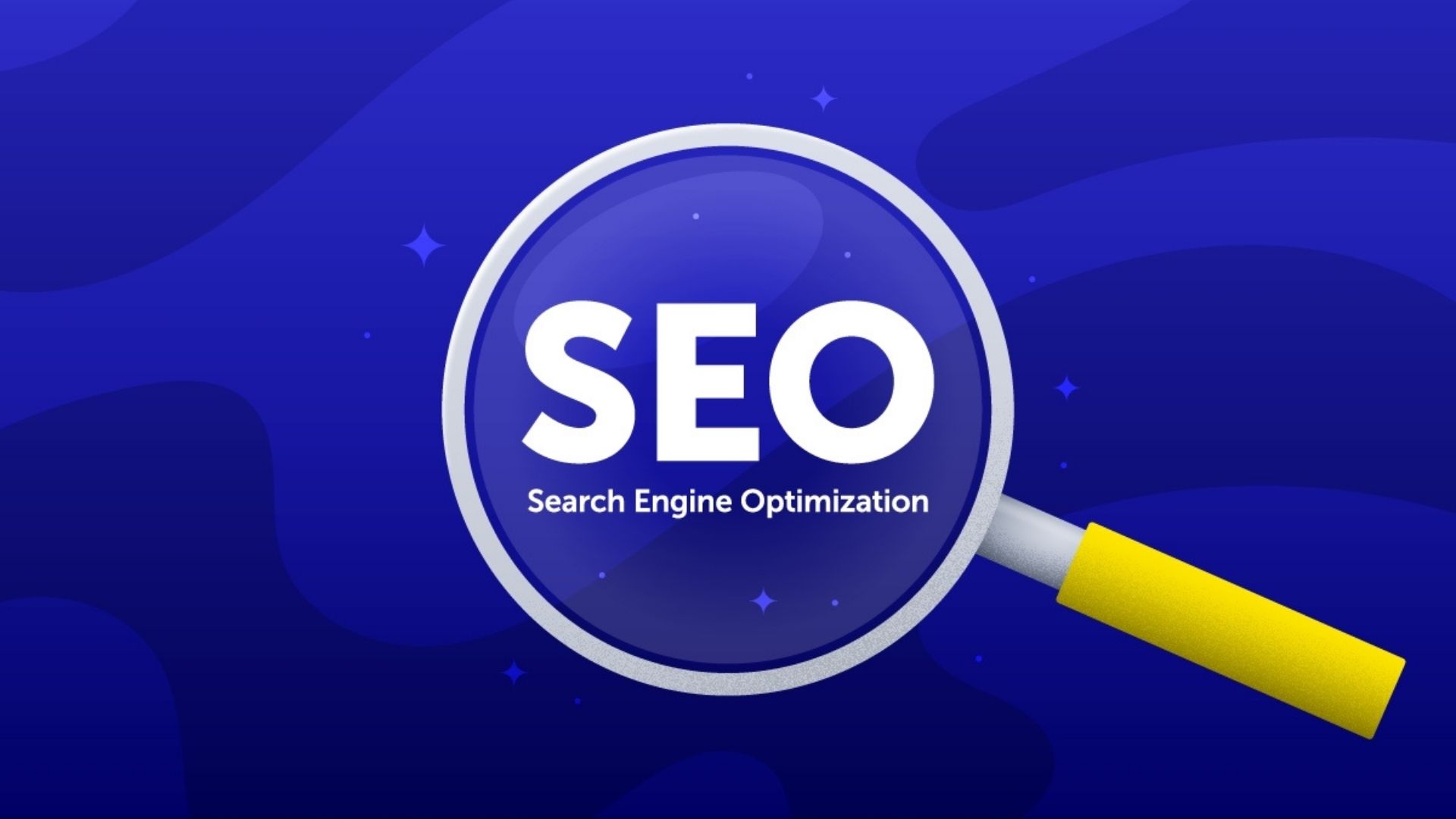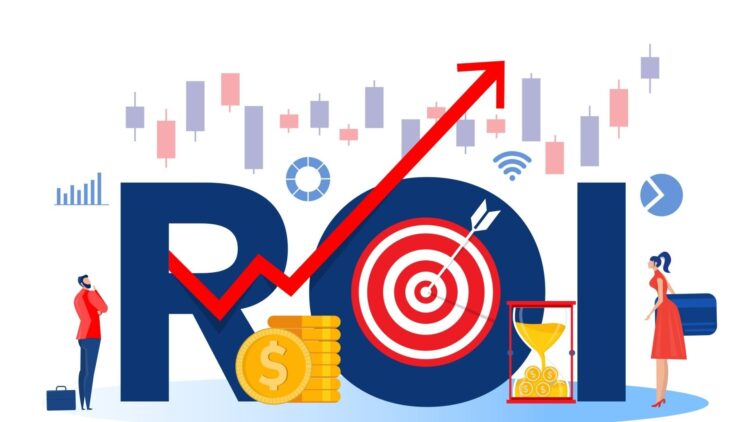Table of Contents
Companies invest in marketing campaigns to raise brand awareness and make money off of it, and this article will guide you on calculating ROI on SEO while giving tips and tricks. If you are running an SEO marketing campaign and wonder how you are currently doing, read the article until the end to understand every concept.
SEO is a crucial component of digital marketing to increase a website’s exposure in search engine results pages (SERPs) and generate organic traffic. Even if a great SEO campaign has many advantages, monitoring the ROI is important to assess how well these efforts work. In this post, we’ll look at different ways to calculate ROI on SEO and offer advice on how to get the most out of it.
This article will mainly concentrate on the calculation method of ROI on SEO and also give tips and tricks to increase it. There are multiple steps that you need to follow. Let’s begin our guide!

ROI on SEO: Calculation
ROI on SEO calculation is the most important thing in an SEO marketing campaign. People run these campaigns to raise brand awareness and make money off it, and the calculation of ROI will give you the exact numbers. You need to calculate SEO ROI for these reasons.
What is ROI?
Return on Investment (ROI) is a financial term used to assess an investment’s profitability or evaluate other investments’ effectiveness. It is determined by dividing the profit from an investment by the total amount invested and expressing the result as a percentage.
To calculate return on investment, divide an investment’s net profit by the initial and subsequent investments sum, then multiply the result by 100. ROI on SEO calculation is also not very different from it.
A wide variety of investments, including stocks, bonds, properties, and company operations, can be assessed using ROI. It is a crucial indicator for investors because it offers a straightforward method for evaluating the prospective profitability of an investment and contrasting the effectiveness of various investment strategies.
It’s crucial to remember that there are many other aspects besides ROI to consider when assessing an investment. Along with ROI, other elements, including risk, liquidity, and market circumstances, should also be taken into account, as they can significantly affect an investment’s success.
What is SEO?
Search engine optimization, or SEO, improves a website or online content to appear more prominently and rank higher on search engine results pages (SERPs). SEO is used to increase a website’s organic search engine ranking and increase traffic.
The quality and relevancy of a website’s content are assessed by search engines like Google using sophisticated algorithms, which are then used to rank the website on their results pages. SEO professionals employ various strategies and procedures to optimize a website for search engines to raise its rating.
Keyword research, on-page optimization, technical SEO, link building, and content creation are the main areas of SEO. If you want to learn more about it, don’t forget to check our Top 5 SEO reporting software tools guide!
Search engines frequently improve their algorithms to give users better results, making SEO a complex and ever-evolving industry. As a result, to succeed, SEO professionals need to keep up with the most recent trends and best practices.
Effective SEO is crucial in digital marketing since it may greatly impact a website’s traffic and income.

Why is SEO important?
There are many reasons why SEO is vital, but one of the most important is that it significantly impacts a website’s success and visibility. Most people in the modern digital era utilize search engines like Google, Bing, and Yahoo to locate goods and services online. When prospective customer types in keywords linked to a company or its products, search engines produce relevant results ranked in terms of quality and relevance.
A website is more likely to acquire substantial traffic and awareness if it ranks first in the search results for pertinent keywords, which can improve sales, leads, and revenue. On the other side, if a website does not appear high in search results, it will probably go unnoticed by visitors and lose out on important prospects for expansion. This will also increase the ROI on SEO.
Since businesses may increase their visibility, audience, and overall success online by optimizing their websites and content for search engines, SEO is crucial. A thorough understanding of how search engines operate and the most current best practices and industry trends are necessary for effective SEO. It can be a time-consuming and tough process for businesses that want to expand and prosper online, but the long-term benefits are more than worthwhile.
SEO ROI statistics
The ROI of SEO can be challenging to measure and varies widely based on several variables, including the industry, the level of competition, and the overall SEO strategy. The average ROI of SEO has, nevertheless, been the subject of various research and surveys.
According to a survey by the Search Engine Journal, the average ROI on SEO is 14.6%, which translates to a return on investment of 14.6 cents for every $1 spent on SEO by the typical business.
It’s critical to remember that these are merely average figures and that the actual ROI of SEO might differ significantly based on the company, industry, level of competition, and overall SEO strategy. Others may get a reduced or even negative return on investment from their SEO efforts.
The easiest way to ascertain the return on investment of SEO for a particular firm is to monitor the effects of an SEO campaign and gauge the evolution of website traffic, conversion rates, and income. However, the above is the average ROI on SEO.
What is the SEO ROI formula?
The revenue from your SEO activities must first be ascertained to evaluate the ROI on SEO. This passage will give you the answer to the “how to calculate SEO ROI” question. To determine this, multiply the number of conversions (such as sales or leads) by the average conversion value. Subtract the price of your SEO strategy, which takes into account costs for labor, equipment, and other resources. To calculate the ROI %, divide the outcome by the SEO campaign’s cost.
Let’s give an example. Suppose your SEO campaign cost $20,000 and brought in $30,000 from 200 conversions, with an average value of $200. Revenue from SEO = 200 x $200 = $40,000 ROI = ($30,000 – $20,000) / $20,000 = 50%.
The real ROI on SEO might vary significantly based on various factors. Thus, it’s vital to remember that this calculation is only an estimate. The simplest approach to figure out the return on investment for SEO for a particular company is to monitor the progress of an SEO strategy over time and gauge the growth in website traffic, conversions, and sales.

How to increase ROI on SEO?
ROI on SEO can be increased through various tactics such as selecting the appropriate keywords, improving user experience, creating excellent content, concentrating on backlinks, monitoring and tracking results, and constantly testing and optimizing efforts. Here is the list of improving ROI on SEO:
Select the appropriate keywords
Choosing the appropriate keywords to target is essential to any SEO campaign’s success. You may improve your chances of ranking higher in search results and drawing more qualified traffic to your website by choosing keywords that are relevant to your business and have a high search volume. This will help you increase your ROI on SEO. The SEO revenue metric is very important for your website’s and company’s future.
You should conduct keyword research to learn what search terms people use to find goods and services similar to yours to choose the best ones. To carry out this study, you might use programs like Google Keyword Planner, SEMrush, or Ahrefs. Once the appropriate keywords have been chosen, you should optimize your website’s content and metadata to include these words, carefully balancing keyword density with relevancy.
Improve user experience
This is also known as UX, another factor in increasing ROI on SEO. You can raise the likelihood that visitors will stay on your website and boost conversion rates by giving them a seamless and engaging experience. This is the best SEO investment for many websites.
UX optimization includes many essential components, such as website load time, navigation, mobile compatibility, and overall design. Website load speed is particularly important to user experience (UX) because it significantly impacts visitors’ experiences and the probability of sticking around on your website. You should pick a quick and dependable hosting provider, avoid using resource-intensive plugins, and reduce the size of your photos to maximize load speed.
Navigation is also very important. By categorizing your website’s material into distinct and logical sections, using insightful and insightful headlines, and offering succinct and clear links, you can make sure that visitors can quickly discover what they are looking for.

Create excellent content
Any successful SEO effort must focus on producing high-quality content. High-quality content helps to establish your website as a reliable and authoritative source of information in your business while also adding value for website users.
You should concentrate on providing pertinent, educational, and interesting material to your target audience if you want to produce high-quality content. This can encompass videos, infographics, blog entries, articles, and more. Additionally, the information should be thoroughly researched, correct, and devoid of grammatical and spelling mistakes.
Concentrate on backlinks
Any successful SEO effort must focus on developing high–quality backlinks. Backlinks, or links pointing to your website from other websites, aid in establishing your website’s authority and reliability with search engines.
You should concentrate on obtaining links from high-authority and relevant websites in your sector if you want to develop quality backlinks. This can be accomplished via various techniques, such as guest blogging, establishing broken links, and obtaining mentions and links from reputable websites.
Low-quality backlinks, including those from spammy or link farm websites, can lower your website’s rating in search results. As a result, you should concentrate on acquiring solid, pertinent backlinks that will raise your website’s authority and reliability in search engines’ eyes. Backlinks are very important to increase your ROI on SEO.
Monitor your results
Any effective SEO plan must include monitoring and outcomes tracking. You can learn much about what is effective and what is not by monitoring the results of your SEO efforts. This will help you plan out your next round of optimization activities.
You can monitor and track your SEO efforts’ outcomes using various tools and indicators. These include keyword research tools, ranking tracking tools, and website analytics.
Website analytics, like Google Analytics, can offer insightful data about your website’s performance, including the number of visitors, their online behavior, and traffic sources. This data can be used to pinpoint problem areas and monitor the development of your SEO effort over time. Monitoring your results will help you increase your ROI on SEO.

Constantly test and improve.
Any good SEO campaign must constantly test and refine its strategies. It’s crucial to regularly evaluate your website’s performance and make adjustments to raise its ranking in search results as user behavior and search algorithmic changes.
It would be best if you regularly analyze your website analytics and ranking tracking tools to find areas for improvement to test and optimize your SEO efforts continuously. To determine what works best, you should continually test various elements of your website, such as your keywords, content, backlinks, and website structure.
Creating two versions of a page or other component of your website and comparing them to see which one performs better in user engagement and search engine ranking is known as A/B testing. The outcomes of these tests can then be used to guide your further optimization efforts. Constantly testing will help you increase your ROI on SEO.










